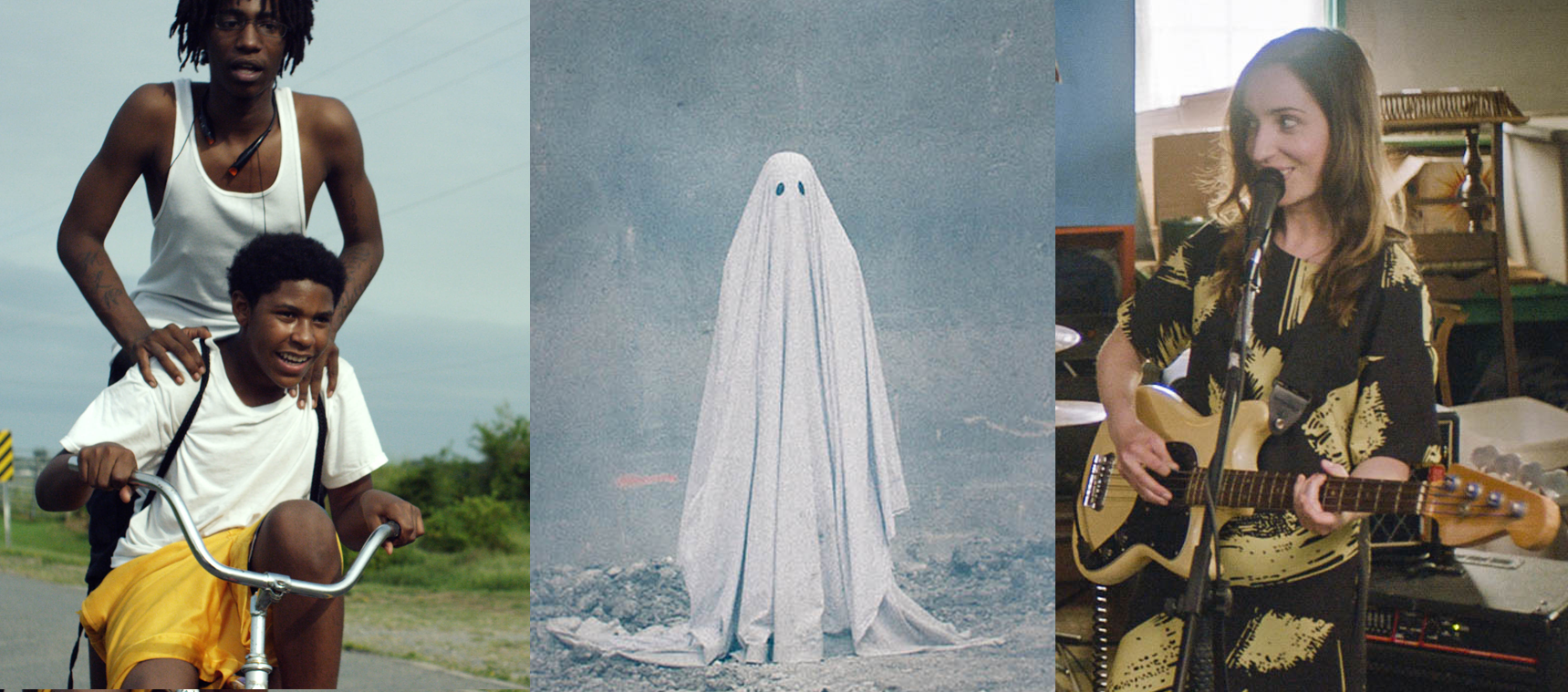The biggest theme of Sundance 2017 was — intentionally or not — Donald J. Trump
But the best films at the festival reinforced what really matters


A free daily email with the biggest news stories of the day – and the best features from TheWeek.com
You are now subscribed
Your newsletter sign-up was successful
The 2017 Sundance Film Festival got off to a slow start, both in the screening rooms and in the streets of Park City, Utah. Compared to last year, when Manchester by the Sea, Love and Friendship, Sing Street, Certain Women, Weiner, and Birth of a Nation generated a buzz that carried throughout 2016, even the most talked-about films from the first few days of this year's fest seemed to lack a certain verve. Meanwhile, it was hard to deny that the Sundance attendees were a little… well, let's just say "distracted." With Donald Trump's presidential inauguration happening on Friday, Jan. 20 — the first full day of the festival — and the counter-Trump protest marches taking place on Saturday, the middling quality of the early slate of movies seemed like a less than urgent problem.
And then on Sunday at noon, returning Sundance director David Lowery — the man who helmed 2013 festival favorite Ain't Them Bodies Saints and Disney's 2016 Pete's Dragon remake — debuted his new film A Ghost Story, an offbeat art-piece he shot over the summer in Texas with Casey Affleck and Rooney Mara. The elliptical tale of a dead man whose spirit returns to haunt the house he shared with his lover, A Ghost Story is as unpredictable as it is poetic, as Lowery follows his subconscious on a winding journey, stopping occasionally to ask some big questions: How will we be remembered? Do we even matter? At one point, a character played by singer-songwriter Will Oldham gives a long, mesmerizing speech about the best that we can hope for as a civilization, which is that some small piece of us will carry forward — in some likely bastardized form — into whatever world succeeds this one.
The Ghost Story audience on Sunday recognized immediately that they'd just seen something special. This is a film of rare artistry and ambition, sure to be debated throughout the year… even by those who ultimately find it pretentious or half-baked. More importantly, A Ghost Story set a tone that pervaded the rest of this Sundance, which over and over screened new work that demanded viewers focus less on the anxious now and more on what ultimately endures.
The Week
Escape your echo chamber. Get the facts behind the news, plus analysis from multiple perspectives.

Sign up for The Week's Free Newsletters
From our morning news briefing to a weekly Good News Newsletter, get the best of The Week delivered directly to your inbox.
From our morning news briefing to a weekly Good News Newsletter, get the best of The Week delivered directly to your inbox.
Given how long it takes to make a movie, it's unlikely that anything in the 2017 Sundance program was directly intended as a defiant rebuke to the new American president. If anything, some of the filmmakers may have assumed a different outcome to last year's election. In writer-director Gillian Robespierre's 1990s-set Landline, for example, there's a joke about then-first lady Hillary Clinton's pantsuits that clearly was meant to have a different resonance than the one it has now. But even in that film — a family dramedy starring Jenny Slate as an engaged New York media professional who panics and takes a break from her fiancee and her job — the ultimate point is that there's value in sticking with something, rather than bailing as soon as times get even a little bit tough.
That particular argument was made so often in this year's Sundance slate of romantic comedies and dramas that the like-mindedness started to seem less coincidental than uncanny. Both Landline and writer-director-star Michelle Morgan's 21st century Hollywood satire L.A. Times revolve around a woman spontaneously abandoning her longtime partner to try something new, only to find the adventure unsatisfying. In Drake Doremus' pointedly titled Newness, Nicholas Hoult and Laia Costa play a couple who meet on a dating app and then return to their phones to chase one-night-stands when their sex life gets stale. In Zoe Lister-Jones's Band Aid, a similarly burned-out husband and wife (played by Jones and Adam Pally) spice up their marriage not by swinging, but by forming a rock band and turning their fights into songs. With the exception of the period piece Landline, all of these films are noticeably up-to-the-minute with their references to everything from Uber to Facebook; but all of them also suggest that some basic values are unchanging, including the idea that if you want to grow old with someone and create something that lasts, you have to let go of the fantasy that both of you are going to be happy all the time.
Three of Sundance 2017's best films extend that thought out beyond one couple. Director Luca Guadagnino's swoon-inducing adaptation of André Aciman's novel Call Me By Your Name tracks a 17-year-old's sexual chemistry with his family's 24-year-old houseguest in the much less gay-friendly world of 1983. The hilarious and heartbreaking The Big Sick lightly fictionalizes actor/comedian Kumail Nanjiani's real-life romance with Emily Gordon (here played by Zoe Kazan), which was complicated by her sudden life-threatening illness and his unwillingness to be honest with his conservative Pakistani family about his feelings for a white girl. And the heroine of the Georgian melodrama My Happy Family gives up on trying to please her grown children, her husband, and her parents — all of whom she's been crammed into an apartment with for decades — and decides instead to pursue a life of quiet solitude. That last movie may not seem to fit with the other two, since it's ostensibly about rejecting a marriage. But all three are really about letting go of convention, and showing the courage and insight to go after something that nurtures both the body and the soul, no matter who it offends.
Wrestling with tradition — and deciding what parts to keep — added thematic weight to several of the Sundance films likely to thrive on the festival circuit this year. Writer-director Dee Rees' spectacular American history lesson Mudbound and newcomer Amman Abbasi's modest character sketch Dayveon both look at black life from different but equally disquieting directions. The former ranges across 1940s Mississippi and the European theater of WWII to explore the legacy of racism that sours the relationship between a white farming family and their tenant laborers. The latter is set in modern Arkansas, in a small town near West Memphis, where the local kids imitate the criminal bravado of urban gangs and rap videos, even though there's very little money to steal or rivals to kill where they live.
A free daily email with the biggest news stories of the day – and the best features from TheWeek.com
The wildly different locations and plots of Menashe and Walking Out don't get in the way of how much the two films have in common. Both are well-observed father-and-son stories. Menashe tells the story of a widower trying to convince the rabbis and relatives in his conservative New York Jewish community to let him keep custody of his boy — even though that violates custom and Talmudic law. Walking Out casts Matt Bomer as a divorced Montana outdoorsman trying to connect with his suburban teenager via a treacherous mountain moose hunt. One film's a neorealist domestic drama; the other's a white-knuckle wilderness adventure. But both are really about how a parental bond supersedes all awkward attempts to force that relationship into "the way we've always done things."
Given how on-edge so many Americans are right now, it was easy to find resonances and relevance in a wide variety of Sundance films this year. Any story with an authoritarian character, or any piece of fevered agitprop, or any study of the plight of society's most marginalized… these all felt like purposeful commentaries, whether they were originally intended to be or not. And yet the movies most likely to be remembered from the 2017 festival weren't necessarily of this moment. The contemplations of the eternal in A Ghost Story will still be meaningful a decade from now, as will conceptual artist Julian Rosefeldt's Manifesto, which has Cate Blanchett playing 13 different characters, each reciting the texts from dozens of passionate, revolutionary old artistic statements. The results of this experiment are open to interpretation, but if nothing else, Rosefeldt illustrates that what cutting-edge artists rebel against changes from generation to generation. What stays the same is their righteous fury at whatever the status quo happens to be.
That's why one of the best documentaries at this Sundance was Long Strange Trip, director Amir Bar-Lev's four-hour history of The Grateful Dead. More cultural analysis than straight biography, the film considers how even within a decades-spanning institution like the Dead, ideals evolve. The myths and rituals of the band were passed down from the '60s to the '90s, until the death of guitarist Jerry Garcia tapped the brakes on the whole enterprise. But as the crowds and paychecks got bigger, some of what the group once stood for fell away. That's the kind of tragedy — or at least irony — that Sundance filmmakers were digging into in 2017.
Noel Murray is a freelance writer, living in Arkansas with his wife and two kids. He was one of the co-founders of the late, lamented movie/culture website The Dissolve, and his articles about film, TV, music, and comics currently appear regularly in The A.V. Club, Rolling Stone, Vulture, The Los Angeles Times, and The New York Times.
